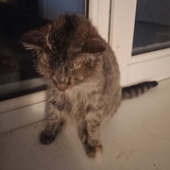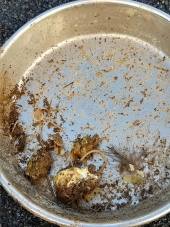




Regards, Scott








Our Microgreens: http://www.microortaggi.it

















William James wrote:I agree with John.
I also am going through the same sort of "chicken-shock".
One thing is that the genetics are just not that great if you get them from hatcheries or from professional breeders. Most of their natural instincts are bred out of them and the only way to get them back is to go into breeding yourself or know someone who is actively trying to breed better genetics in their chickens. Disease resistance is just not something a good portion of chicken owners care about. Even "your grandma's chickens," supposing she had them, we're not kept to be very resistant. One sniffle and into the pot they went. That's one way to do things, but there might be better ways.
Our saving grace seems to be a good veterinarian who gets us things cheaply and the visits are likewise economical, which gives us a chance to discuss chicken problems. At the beginning, we spent 200 euros to save a chicken we eventually had to put down.
One other problem is that hens have extra problems related to their reproductive system because they have been maxed out for egg production. In nature they probably wouldn't have prolapses and such.
Nice thread.
William




Regards, Scott









Zach Muller wrote:
I know some chicken keepers who do not breed any and they will nurse their hens like they are their children when they get sick.
Our Microgreens: http://www.microortaggi.it









Our Microgreens: http://www.microortaggi.it





I took one to the vet for a prolapse. He said to push it back in.










Regards, Scott









Leila Rich wrote:
but I do wonder about the potential for large, unproductive, unsustainable populations gobbling commercial feeds until they finally expire
A bit off topic, but something I can see happening around me.
Our Microgreens: http://www.microortaggi.it
 2
2








Regards, Scott




alex Keenan wrote:I guess I look at raising chickens differently from most of the folks on this discussion.
I see my flock as part of an ecosystem, not pets. To be a valid component I need enough birds so they can randomly breed. I have found that a flock of at least 30 birds with only five males works. Currently I have a couple groups like this. The birds forage by day and are locked up in their roost at night. My ecosystem has a number of predators so I will lose some birds every year. Mostly I lose old and first years. I deal with predators when they become an issue. For some predators like skunks I tend to just pepper spray them if they try to get into the chicken house. A raccoon or possum will generally have to be dispatched. Great Horned Owls I relocate if I really have to. I would just feed a big male if my wife would let me keep one around. The small hawks and owls we try to keep around. We had a small hawk nesting in a tree right out the back door for years before the tree died and had to be taken down. So when I look at bird I try to see what part they need to play and what I need to create so they can play their role in my ecosystem.

| I agree. Here's the link: http://stoves2.com |






